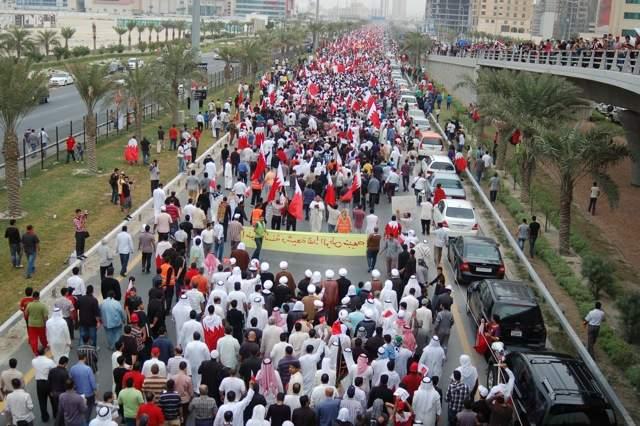Bahrain’s top Shia cleric condemns life sentences for protest leaders
Manama - Bahrain’s top Shia cleric on Friday sharply criticized the life sentences given to eight opposition leaders for their role in anti-government protests in this Gulf kingdom.
Sheik Isa Qassim’s sermon is the latest signal that Shia leaders could snub Sunni rulers’ appeals for dialogue next month amid the crackdown in Bahrain, which is home to the US Navy’s 5th Fleet.
The cleric called the mass trials of Shia opposition figures unfair and appealed to the nation’s Sunni rulers to overturn the sentences.
“This is not an environment for a political solution, when people are suffering,” the cleric said during the Friday sermon in Diraz, an opposition stronghold northwest of the capital, Manama. “These sentences and abuses are like a dam preventing people from participating in dialogue.”
A special security court on Wednesday convicted 21 opposition figures of plotting to overthrow the royal family. Eight leaders received life sentences and 13 others got long prison terms.
In a statement Friday, Bahrain’s government defended the sentences, saying that the activists were convicted of “plotting to violently topple Bahrain’s government” and “passing sensitive information to a terrorist organization in a foreign country.”
Authorities claim that Iran was behind the protests they say were aimed at overthrowing the 200-year-old monarchy. Sunni rulers across the Gulf fear that any Shia gains in the country could open new footholds for influence by Shia power Iran. Saudi Arabia and other Gulf states sent troops to help quell the revolt.
Shia leaders in Bahrain repeatedly have denied any ties to Iran and accuse leaders of using the fears of Iranian string-pulling to wage crackdowns. At least 31 people have died in the unrest and hundreds have been detained since February.
Bahrain’s ruling dynasty has proposed opening talks with opposition delegates 1 July, but the outreach has met a cool reception from Shia leaders demanding that authorities roll back security measures and halt the trials against activists.
The security court was set up under martial law that was imposed in March to quell protests, and has promoted criticism from Bahrain’s Western allies.
The US had expressed concern about the severity of the sentences and the use of the military-linked security courts. UN Secretary-General Ban Ki-moon also has urged Bahrain’s government to allow political activists to appeal their sentences.
Fourteen of the 21 convicted are in custody while the rest were sentenced in absentia.
The security court has presided over a series of cases linked to the protests, including issuing two death sentences against men accused of killing police officers during the demonstrations.
Earlier this month, it sentenced a 20-year-old woman to a year in prison for reading poetry critical of Bahrain’s king.
A trial is scheduled to resume next week for more than 30 doctors and nurses accused of supporting the protests. Some of the medical personnel claim they were abused while in custody.
اجمالي القراءات
5316


